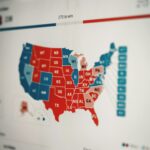Free to Boom: Fireworks Regulations Around the Country
Independence Day is often celebrated with some of the most American activities imaginable: drinking beer, grilling meats, and blowing things up. Unfortunately, thanks to a complicated patchwork of federal, state, and local laws, Americans’ ability to enjoy the latter varies widely from place to place.
The federal government has established a classification for which fireworks are legal based on size and chemical composition, but most states choose to impose further restrictions on the sale and use of fireworks by consumers.
Massachusetts is currently the only state that still has a complete ban on all fireworks, but about half the states heavily restrict which varieties are allowed. Often this is limited to sparklers, fountains, and other “novelty” fireworks that do not explode or shoot into the sky, with Delaware, New Jersey, and Illinois being among the strictest of these. The rest allow most or all federally classified consumer fireworks, though even many of the more free states restrict their sale and use to specific windows during the year. Michigan, Alabama, and Arkansas have among the least restrictive laws, and have now been joined by Pennsylvania thanks to new legislation taking effect this year.
Reasons for the bans vary from practical concerns to paternalism. Many western states with dry environments raise valid concerns about the high risk of fireworks sparking off wildfires. Other bans, however, arise out of a misplaced desire to protect people from themselves. But this impulse contradicts reality; the number of injuries in proportion to the amount of fireworks being shot off has been in a steady decline since 2000, according to the American Pyrotechnics Association (APA).
The bans are, for the most part, not only poorly reasoned, but largely ineffective. As is often the case with prohibitions, people still find a way to get their hands on illegal fireworks, especially when often all it requires is a short drive across the the border to a less restrictive state.
Unnecessary restrictions on fireworks don’t just limit the way we celebrate; they harm the economy. The APA estimates that consumer fireworks sales generated $885 million in revenue last year, yet this could be a much larger contributor to the economy if not for needless regulations. And thanks to burdensome product restrictions, timing limits, and licensing requirements, any entrepreneurs looking to enter the fireworks market will face prohibitively steep compliance costs.
Fortunately, laws seem to be moving in the right direction. In addition to Pennsylvania’s expansion of permitted fireworks, the last year has seen the lifting of total bans in both Delaware and New Jersey. This is part of a broader trend of loosening fireworks restrictions among states that will hopefully continue to bring our country closer to John Adams’s vision of celebrating Independence day with “bonfires and illuminations from one end of this continent to the other from this time forward forever more.”




